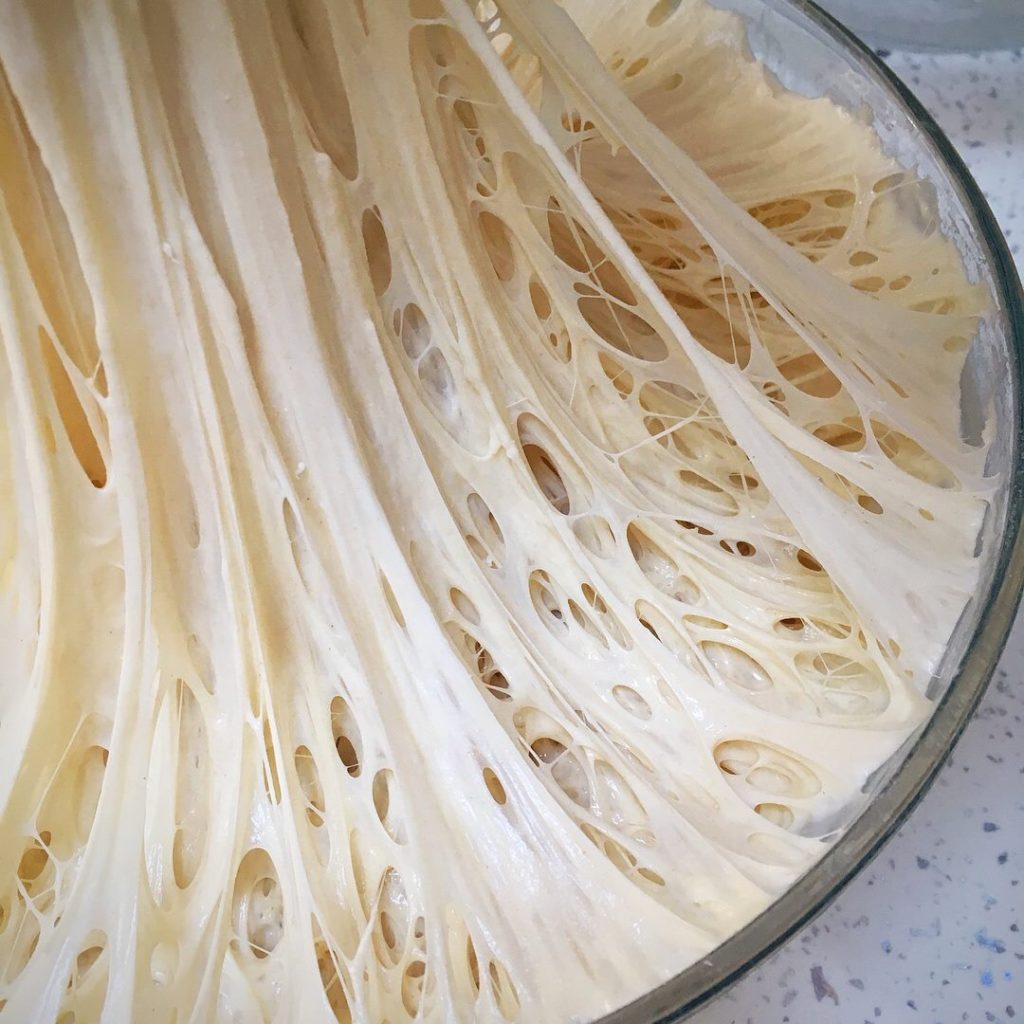
Amazing, beautiful dough…I love seeing this! This is a shot of the underneath of my bowl of dough following it’s overnight prove, the dough has risen and more than doubled in size and you can see the texture all the way through the dough. It’s a joy every time I wake up to a sight like this, it never ever gets boring!
So, here are some notes to keep in mind regarding dough…
🌟 for everyone who has asked me if their starter is strong enough: if your dough is growing and doubling, your starter is fine and working well
🌟 if your dough isn’t growing, it’s either because it’s been cold, see below, or your starter needs a boost, see my site for details
🌟 all doughs are different due to different flours, different temperatures, different environments and different handling
🌟 if it’s been cold overnight and your dough hasn’t doubled, it’s normal, temperatures under 18C/64F will slow the growth down; just give it longer in the morning to do its work
🌟 under proved dough will result in a dense loaf with large uneven holes, but it will still taste good!
🌟 if it’s been warm overnight, well over 20C/70F your dough will grow and possible double and look volcanic and fabulous, however, it risks over proving and losing all structure and integrity, it will be soft and sloppy and impossible to work with
🌟 over proved dough will result in a flat dense bake, but it will also still taste good!
🌟 to combat high temps either read the baking timetable on my site or use less starter in your dough
🌟 when you handle your dough after it’s main bulk prove, it should feel bouncy and have some nice resistance
🌟 my best tip is: learn to watch your dough and not the clock; your dough well tell you what’s happening and what you need to change, if anything, and,
🌟 get to know your starter
🌟 get to know your flours and your doughs
🌟 get to know how sourdough works in YOUR home
🌟 Make notes, jot down times and temperatures, flours and behaviours and create your own reference guide.
🌟 Happy baking! 🌟
